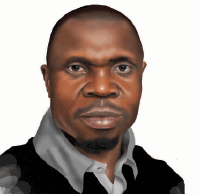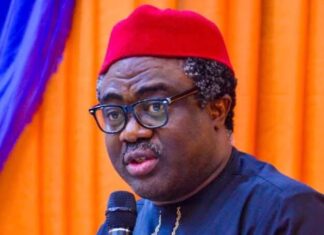History is not only written; history lives. History has breath. History is not only told; it sometimes tells the story of itself.
That means history is human. History speaks. History eats. History does not lie idle waiting to be told. History walks about generating more historical facts. History makes history.
I completely disagree with Boris Pasternak who once said that “history cannot be seen, just as one cannot see grass growing”. Using the growth of the grass as a metaphor for seeing history unfold sounds like a wrong comparison.
What is history today was a live event yesterday. What we witness happen today is tomorrow’s history. I define history as the fermented version of today’s event.
Cicero, in his definition of history, did what only Cicero could do. He says history is the witness that testifies to the passing of time; it illuminates reality, vitalises memory, provides guidance in daily life, and brings us tidings of antiquity.
Thursday, August 14, brought a historic significance to the recent national conference. It was the last day the conference sat in plenary, and adopted its final report. What happened on that day has continued to defy all logical analyses.
Contrary to media hype that the conference would implode, the opposite happened. The subject of that implosion was a document titled: Draft Constitution.
Some delegates ignorantly believed the conference secretariat had written a new constitution for the country. Their grievance was that the so-called new constitution would give President Goodluck Jonathan and some of the state governors a third term in office.
That document, however, was not a new constitution; it was merely a compilation of all the proposed amendments made by the delegates to the existing constitution. Perhaps, it was wrongly titled.
Shortly after the adoption of the votes and proceedings of the previous sitting, a motion sponsored by Jerry Okwuonu and former governor of Rivers State, Peter Odili, was tabled. It came as daybreak after a stormy night.
It was a short motion, but of great significance to the conference. It focused on “a very marvellous job” done by the conference secretariat in “compiling the report of the conference and presenting same to us in easily readable and cross-checkable format”.
It confirmed that the delegates have perused all the reports and had submitted in writing all items of omission or incorrect addition to the final report.
It stated that bearing in mind the dual necessity of bringing the conference to a close for purposes of not unduly over-reaching the logistics provision of the conference, and not unnecessarily prolonging the continued conglomeration of people in contradiction to the prescription of health authorities, especially as the country tackles the Ebola crisis, something drastic had to be done.
“It is hereby moved that the secretariat be mandated to vet all the written submission by delegates and make necessary correction, thereby providing the final draft of the conference reports,” stated the motion.
While the motion was being presented, most delegates, overwhelmed by unexpected relief, started applauding. As soon as the motion was seconded, an amendment was suggested by a delegate from Sokoto State.
It stated: “We urged the leadership of the conference, in collating the final report, to more appropriately designate Volume 3 as: Draft Proposals to Amend the Constitution of the Federal Republic of Nigeria, 1999.” This was to replace the original title: Draft Constitution.
The amendment was unanimously accepted by the conference. The chairman, Justice Idris Kutigi, put the questions, first, on the motion, then on the amendment. The responses were positively crushing.
Miraculously, a day that was predicted to be explosive turned out to be one of the most peaceful at the conference. The evil prediction that the conference will have no report to present to President Jonathan last Thursday failed woefully.
Most of the delegates from a section of the country had, before that August 14, vowed to frustrate the conference because of the report on the amendment of the constitution. Newspapers sympathetic to their interest turned ethical journalism on its head and went completely sensational.
Within that week, an opposition newspaper went over-board with a false report that the conference had adopted a six-year single term for the president and state governors; 50 per cent derivation principle; and had scrapped the existing 774 local government areas.
It was a questionable piece of journalism. Even those opposed to the conference must have had a good laugh. Conference delegate and former chairman of The Punch newspapers, Ajibola Ogunshola, felt so painfully embarrassed that he drove all the way to the newspaper house in Abuja to give the reporter a copy of the conference report.
With the tempestuous atmosphere calmed with two soothing motions, it was time to adopt the report of the conference. Many hands went up. But the chairman requested Richard Akinjide, a Senior Advocate of Nigeria (SAN), to move the motion.
Here was history unfolding. Akinjide, a former minister, had his Law degree in 1955. He was in Parliament before, during and after Independence. Almost 60 years later, Akinjide was up with a motion to adopt the report of centenary national conference.
While we are still reading about his past, he made another history. As he moved the motion, you could feel the passion in his voice and in the hall; as history unfolded. The motion was seconded by the youngest delegate, Yadomah Mandara. The conference ended on Thursday.














